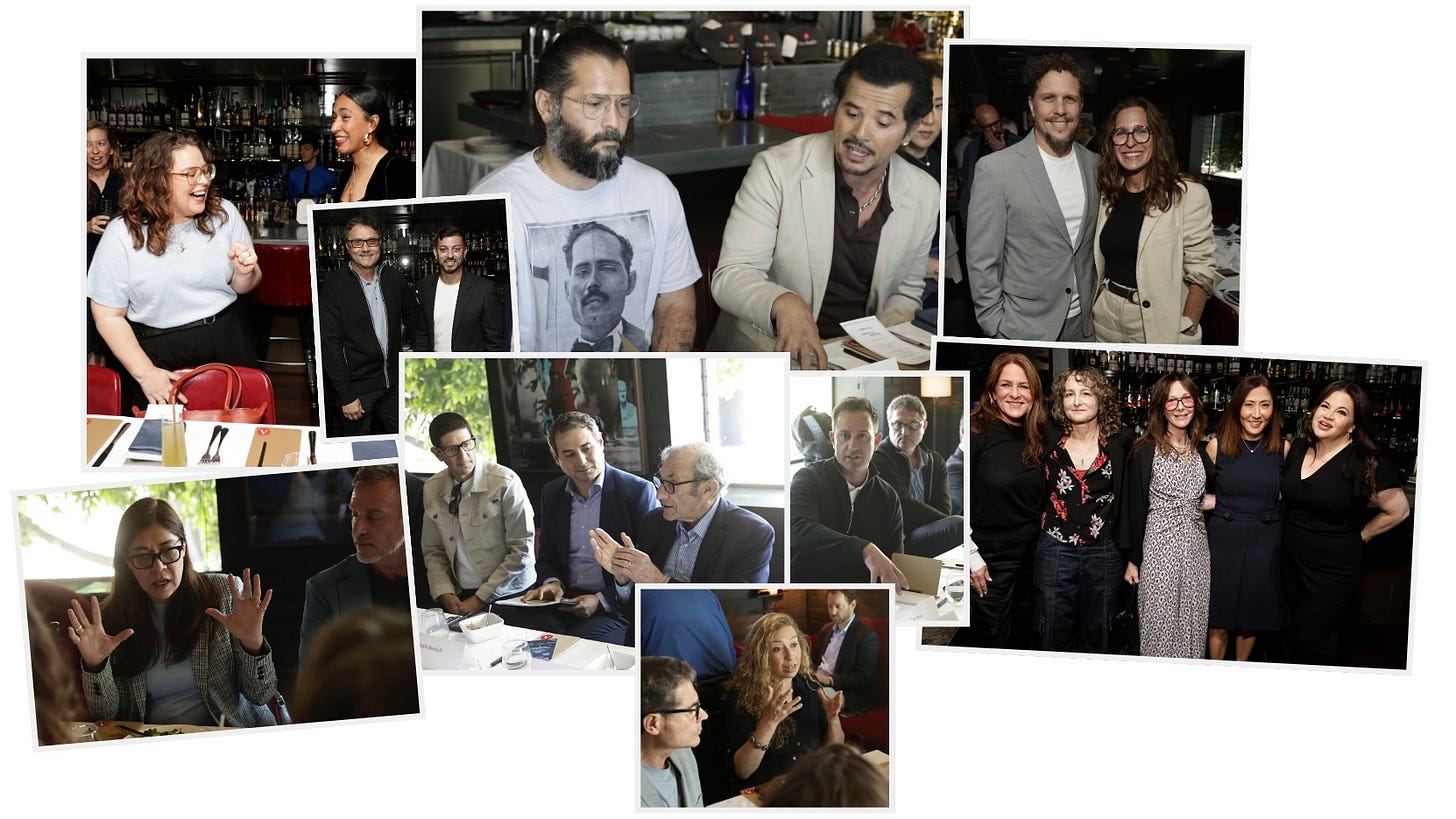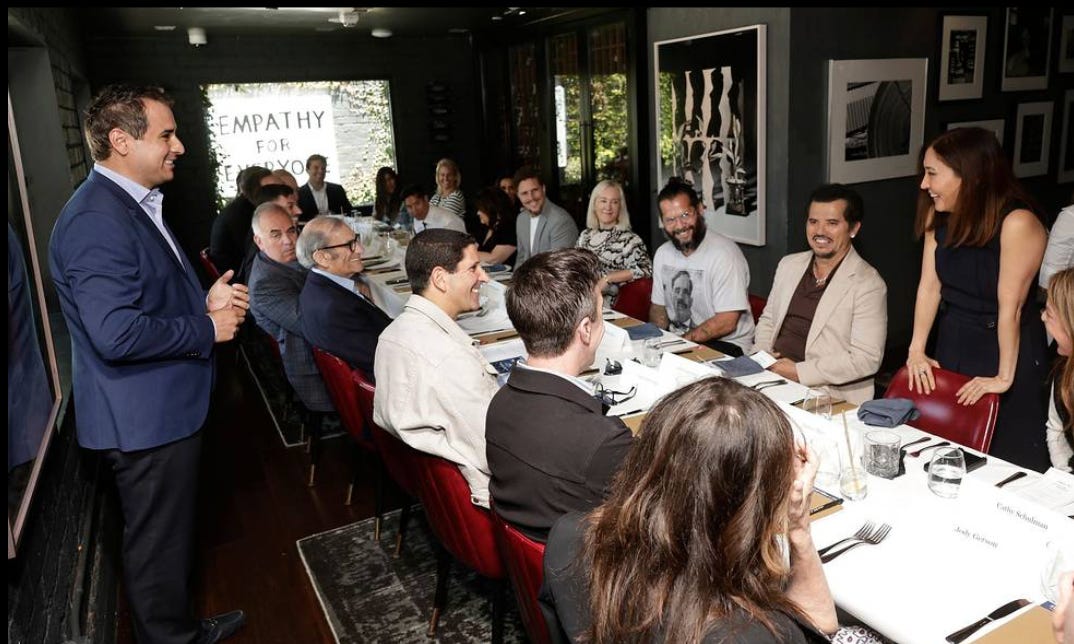Our $18 Billion Blindspot
19 percent of the U.S. audience is Latin yet pathologically dismissed by Hollywood. Does the industry not like money anymore?
The Lunch
I don’t find myself getting shocked very often by Hollywood anymore. But a couple of weeks ago, I found myself shocked, and stunned. And frankly, bewildered.
The setting was a small lunch hosted by my partner, Ankler CEO Janice Min and Camilo Becdach, a partner at McKinsey and Company, at Nerano in Beverly Hills. The topic was how the entertainment community could seize the financial opportunity of the massive Latin market. We invited about 30 guests, some of the smartest and engaged people from the entertainment community, including Ken Ziffren; John Leguizamo; directors Ángel Manuel Soto (Blue Beetle, the coming Jason Momoa-Dave Bautista The Wrecking Ball) and Linda Mendoza Kahle (the in-demand director of TV series such as Grown-ish and standup specials for the likes of Wanda Sykes and Sam Jay); Universal Music Publishing Group’s Jody Gerson and Alexandra Lioutikoff; producers Nina Jacobson and Cathy Schulman; showrunner Dailyn Rodriguez (The Lincoln Lawyer); Moonbug’s managing director, North America, Courtney Holt; Dodgers owner Alan Smolinisky; Diana Mogollón, CEO of Rideback Rise; and Gaz Alazraki, the director of Max’s Father of the Bride as well as Nosotros Los Nobles (the highest-grossing film in Mexican history), along with his head of production, Alisa Tager.
The lack of a Latino presence in Hollywood wasn’t a surprise to me, nor I imagine is it big news to anyone reading this. For myself, I’d written about it just a few months ago, so I certainly have no claim of ignorance to fall back on.
The conversation at the lunch was Chatham House Rules, so I can’t quote directly, but I can say, with a good sample of the Hollywood Latino power structure present, hearing the facts on the ground of what the attendees have to deal with day to day was startling. There are battles with algorithms and marketing departments and with business affairs, where a lack of precedent in Latin-starring projects on which to base quotes and budgets means the zeros disappear off a deal once a project takes on any kind of Latin tilt.
Did we not just spend a decade fighting a 40-years-late battle about diversity in the industry? Yet in this sector, we’re apparently still in 1967.
Couple that with the economic facts here, as laid out in the McKinsey study — how an industry that desperately needs at this moment to expand and reinvent itself walks away from perhaps the biggest pot sitting on the table because . . . because . . . it just is.

I doubt there are many reading this who would disagree that the plight of Latin Hollywood is fairly shameful, but when you combine that shame with the missed opportunity, it becomes something closer to criminal malpractice. Can you imagine any other industry — cars, soft drinks, banks, insurance — saying, we’ll pass on that extra 19 percent of the consumer audience? Oh, and by the way, 1 in 4 children in America are Latin.
Jody Gerson, chairman and CEO of Universal Music Publishing Group, and Alexandra Lioutikoff, UMPG’s president, Latin America and U.S. Latin, who work with such music industry behemoths as Bad Bunny, Rosalía and Carín León, were great counterpoints to the Hollywood narrative, as Latin music has found a home and explosive growth in their industry through streaming’s democratization of content and its focus on youth. (Remember them, Hollywood?)
So given that the opportunity seems so clear — as does the injustice — why the hell are we still just talking about this, or not even talking about this, in 2024?
Let’s get into it, as well as the opportunity . . .





